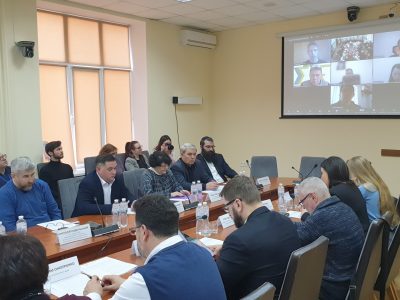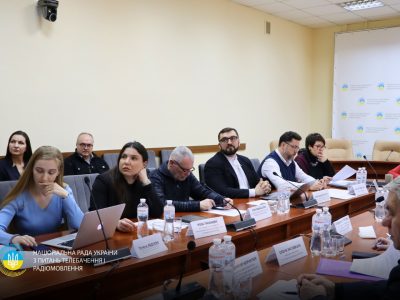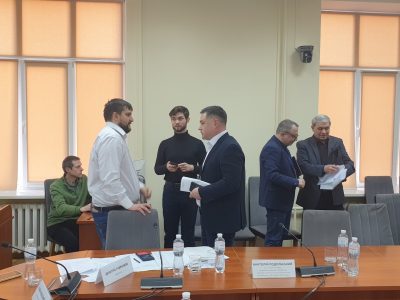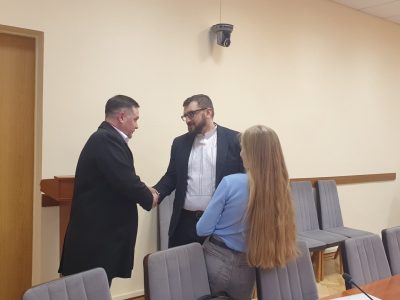Experts meet in Kyiv to define what should count as antisemitism in the Ukrainian media
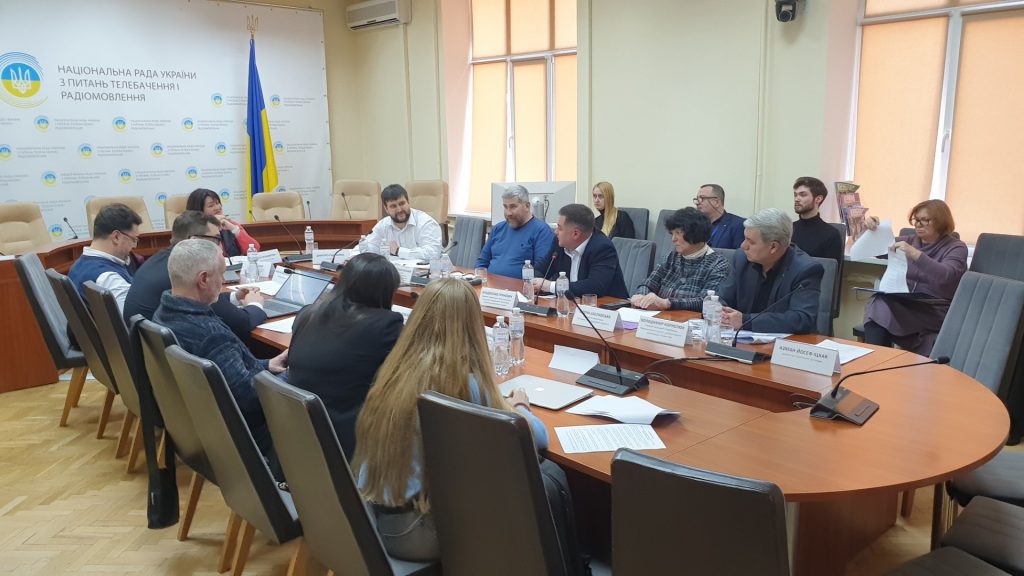
The Ukrainian Jewish Encounter (UJE) systematically cooperates with Ukraine's state and local authorities. This year, Ukraine's National Television and Radio Broadcasting Council initiated the creation of a special expert group to develop criteria for classifying information as intolerant or discriminatory on the basis of ethnicity or religion and, in particular, to decide on what should count as antisemitism in various formats in the Ukrainian media.
Among the experts were representatives of Ukraine's most prominent non-governmental organizations (including Jewish religious organizations), specialists in Ukrainian-Jewish history and relations, opinion leaders in the Jewish community, and antisemitism researchers. The state was represented by members of the National Television and Radio Broadcasting Council, the State Service of Ukraine for Ethnic Policy and Freedom of Conscience, and the Secretariat of the Verkhovna Rada Commissioner for Human Rights. UJE was represented by its regional manager Vladyslav Hrynevych, Jr.
Olha Herasymiuk, head of the National Television and Radio Broadcasting Council, opened the meeting on March 30, pointing out that the Law of Ukraine "On Media," which was developed and adopted to meet the requirements set by the European Union for Ukraine, would enter into force the next day. The law introduced media reform in Ukraine and new mechanisms to combat discrimination and hate speech. Herasymiuk also noted that the discussions at the meeting would be focused on the issue of antisemitism in the Ukrainian media.
Elvina Kurtalieva, who represented the Secretariat of the Verkhovna Rada Commissioner for Human Rights, spoke about the legislative mechanisms in Ukraine for regulating discrimination against people based on ethnicity. In particular, amendments to the Criminal Code were adopted in February 2022 to prevent and combat antisemitism in Ukraine. These amendments criminalized intentional actions aimed at inciting ethnic, racial, or religious hatred or enmity or demeaning ethnic honor and dignity.
Viacheslav Likhachov, a well-known Ukrainian expert on antisemitism who represented the Association of the Jewish NGOs of Ukraine, shared the results of an analysis carried out to gauge the level of xenophobia and antisemitic manifestations in the Ukrainian media. He noted that in more than 15 years of monitoring, he recorded only one example of xenophobia in a national television program. Such instances did occur in the press; they are, of course, much more numerous on the Internet.
In his presentation, he showed examples of an intolerant and discriminatory image of a Jew, which exploited stereotypical ideas of Jews and was broadcast in an animated film on YouTube during the last presidential election campaign. Also shown was news footage from a well-known channel, telling the story of the Jewish New Year against the backdrop of piles of garbage left on the border of Belarus when Hasidic Jews were not allowed to enter the Ukrainian city of Uman due to the COVID-19 pandemic.
According to Anatoly Podolsky, head of the Ukrainian Center for Holocaust Studies, antisemitism in Ukraine exists, but it is marginal and not mainstream in Ukrainian society. During the Revolution of Dignity, Jews stood alongside Ukrainians and were among the heroic victims of the Maidan. Many Jews now defend Ukraine at the front in the war against Russia. Podolsky views Ukrainian Jews as part of the Ukrainian people and the Ukrainian Jewish culture as part of Ukrainian culture.
Other representatives of Jewish communities and organizations outlined certain problems. One of them is when Ukrainian Jews are unfairly held responsible for some actions or positions of the state of Israel. Another one is that the Ukrainian state is not, unfortunately, making sufficient efforts to memorialize Jewish mass graves. There are more than 2,000 of them, and the state should adopt a comprehensive approach to their memorialization rather than doing it locally.
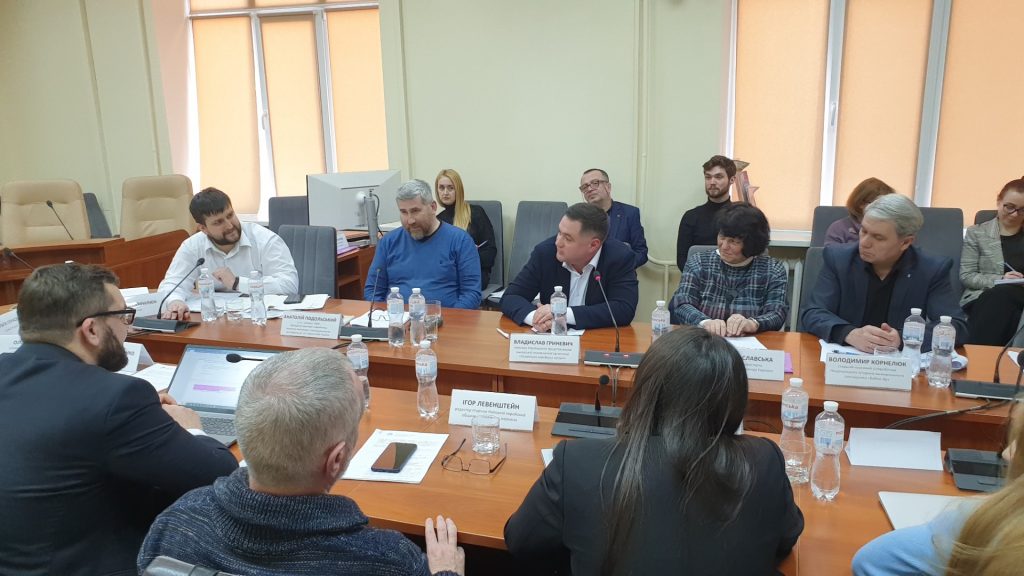
Vladyslav Hrynevych, Jr., head of UJE's Ukrainian Office, emphasized that Ukraine is a multinational, tolerant state that adheres to democratic standards. Therefore, combatting antisemitism is an important task and even a duty of the entire society. He mentioned the findings of a 2018 sociological survey by the Pew Research Center, a well-known organization that conducts public opinion polling, demographic research, media content analysis, and other social science research worldwide. According to this survey, the lowest level of everyday antisemitism among Central and Eastern European countries was recorded in Ukraine: a mere 5 percent of Ukrainians would not like to see Jews among their country's citizens.
In general, all the participants contributed to the discussion and worked very actively in a positive atmosphere. The plan for the near future is to finalize and implement recommendations for the media in order to prevent the spread of ethnic, national, and religious biases against the Jewish community in Ukraine.
On an additional note, the Jewish Confederation of Ukraine issued a statement on 16 June 2023, noting that everyday antisemitism, which was already one of the lowest in Europe, has been practically non-existent in Ukraine since 24 February 2022.
Vladyslav Hrynevych, Jr.,
Regional Manager,
UJE Ukraine







